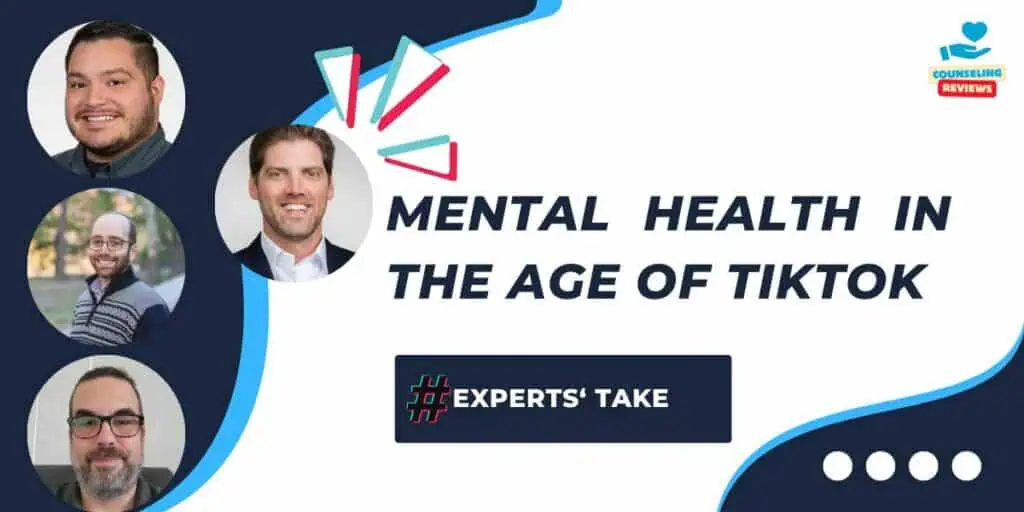As we navigate the digital revolution, TikTok has emerged not just as a platform for entertainment but as a significant influencer of public discourse on mental health. This phenomenon presents both opportunities and challenges, reshaping perceptions and often, the realities of mental wellness in profound ways.
In this feature, “Mental Health in the Age of TikTok,” we explore the nuanced implications of this popular social media platform through the eyes of numerous therapists and mental health experts. Their insights reveal the complex effects of TikTok on mental health, unpacking the trends, therapeutic interventions, and the broader psychological impacts that define this new era. Engage with us as we dissect how short-form video content is rewriting the rules of engagement for mental health advocacy and therapy.
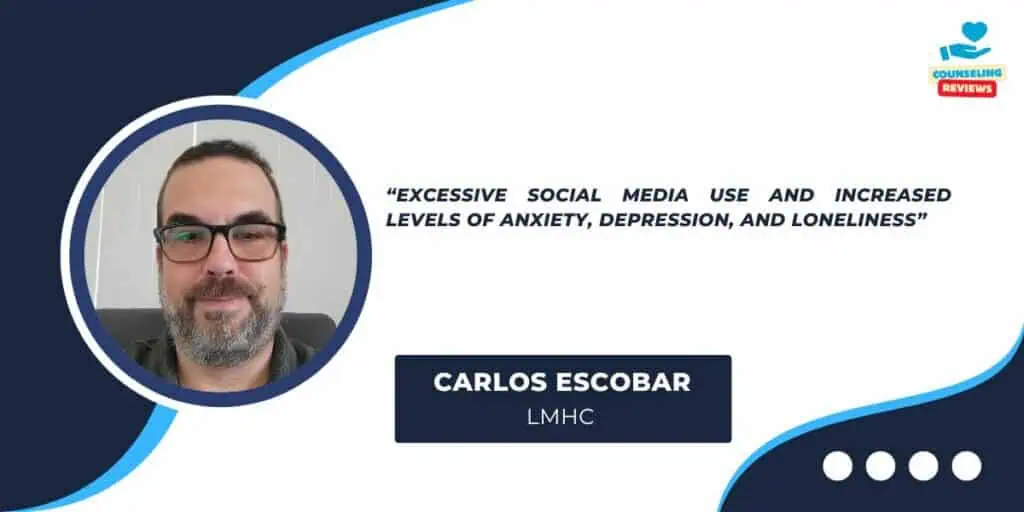
Carlos Escobar, LMHC at Real Recovery
In recent years, TikTok has made a huge name for itself, specifically among younger people. Its quick and snappy content keeps everyone entertained, but it also brings stress.
The immediacy and the highly addictive nature of TikTok content can lead to excessive screen time, disrupting sleep patterns, reducing physical activity, and impacting mental well-being. Excessive social media use and increased levels of anxiety, depression, and loneliness. The constant exposure to curated lifestyles and comparison traps on platforms like TikTok can exacerbate feelings of inadequacy and low self-esteem, particularly among teens and young adults. However, it’s also important to acknowledge the positive aspects. TikTok has become a platform for voicing and sharing personal experiences with mental health issues, offering a sense of community and understanding that many find supportive.
The platform’s algorithm-driven content can create echo chambers, reinforcing negative behaviors and thoughts, yet it also allows for the dissemination of mental health resources and positive coping strategies. That being said, it’s important we consume social media in a healthy way by taking breaks and reminding ourselves that most things aren’t as real as they seem online.
Carlos Escobar, LMHC
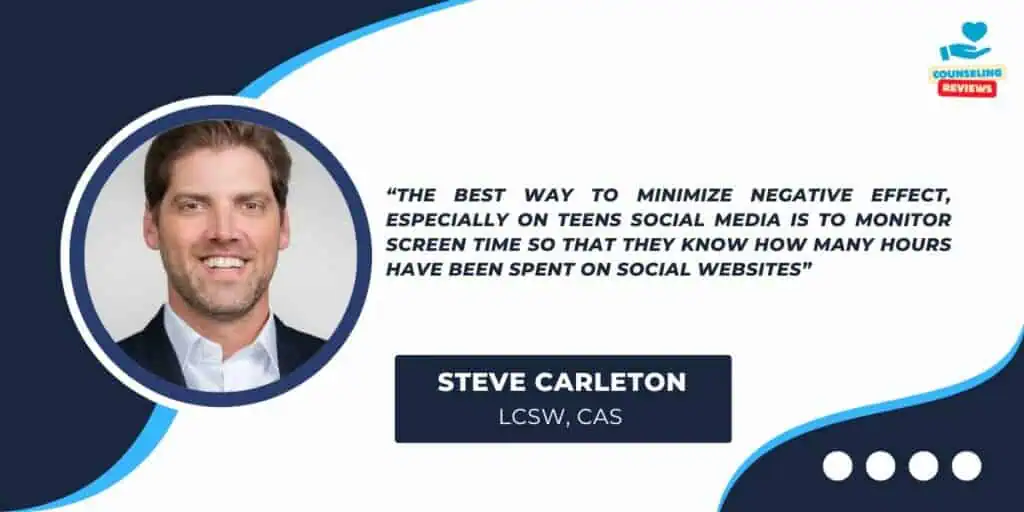
Steve Carleton, LCSW, CAS at Porch Light Health
While social media could prove to be a good tool for increasing one’s number of friends and staying connected with family, it might result in adverse effects on the minds of young people. Young children are more vulnerable to hate speech, cyberbullying or discrimination that they may suffer from social media platforms leading to increased anxiety and depression among teenagers as a result of these negative online experiences.
In addition, there were cases where certain kinds of deaths occurred due to suicide and self-harm-related content like “cutting”, partial suffocation as well as challenges involving high risks which were posted on social media platforms.
The best way to minimize negative effect especially on teens by social media is monitoring screen time so that they know how many hours have been spent on social websites. This kind of self-awareness can lead to more conscious use of technology.
Steve Carleton, LCSW, CAS
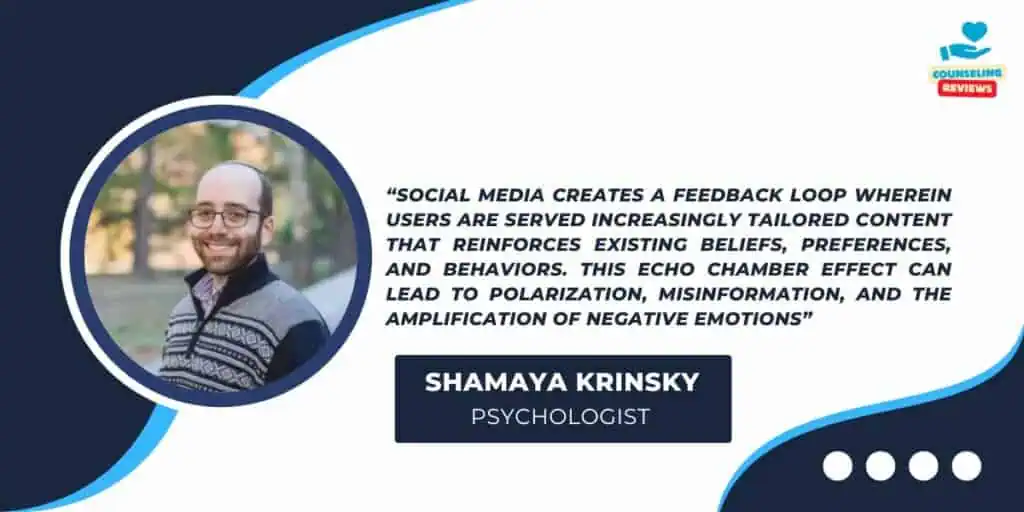
Shmaya Krinsky, Psychologist at Anxiety BHP
In 2024, the impact of social media on mental health is a topic of growing concern among mental health professionals. One significant aspect of this impact revolves around the gamification and maladaptive reinforcement cycles inherent in these platforms.
Social media platforms, utilize gamification techniques such as likes, comments, shares, and follower counts to engage users and keep them hooked. These features tap into psychological mechanisms associated with reward-seeking behavior, creating a cycle of seeking validation and approval through engagement metrics. Users may find themselves constantly checking their notifications and seeking out new content in pursuit of these rewards, leading to compulsive usage patterns that can negatively impact mental well-being.
Moreover, the algorithmic nature of social media platforms, contributes to maladaptive reinforcement cycles. These platforms employ sophisticated algorithms that analyze user behavior and preferences to personalize content delivery. While this can enhance user experience by surfacing relevant content, it also creates a feedback loop wherein users are served increasingly tailored content that reinforces existing beliefs, preferences, and behaviors. This echo chamber effect can lead to polarization, misinformation, and the amplification of negative emotions, further exacerbating mental health issues such as anxiety, depression, and feelings of inadequacy.
In therapy sessions, clients often express frustration at their struggles to control their social media habits despite their best efforts. To clients, I often compare the situation to a David vs. Goliath scenario, where you, as an individual, have only one therapist assisting you in managing your social media usage, while social media companies employ thousands of engineers, psychologists, and data scientists working tirelessly to optimize their platforms for maximum user engagement. This vast disparity in resources highlights the uphill battle individuals face in resisting the allure of social media and underscores the need for systemic changes to mitigate its negative impact on mental health.
Overall, the gamification and maladaptive reinforcement cycles inherent in social media present significant challenges to mental well-being. It’s imperative for mental health professionals, policymakers, and society as a whole to address these issues proactively through education, regulation, and advocacy to promote healthier digital environments and support individuals in cultivating a balanced relationship with technology.
Shamaya Krinsky, Psychologist
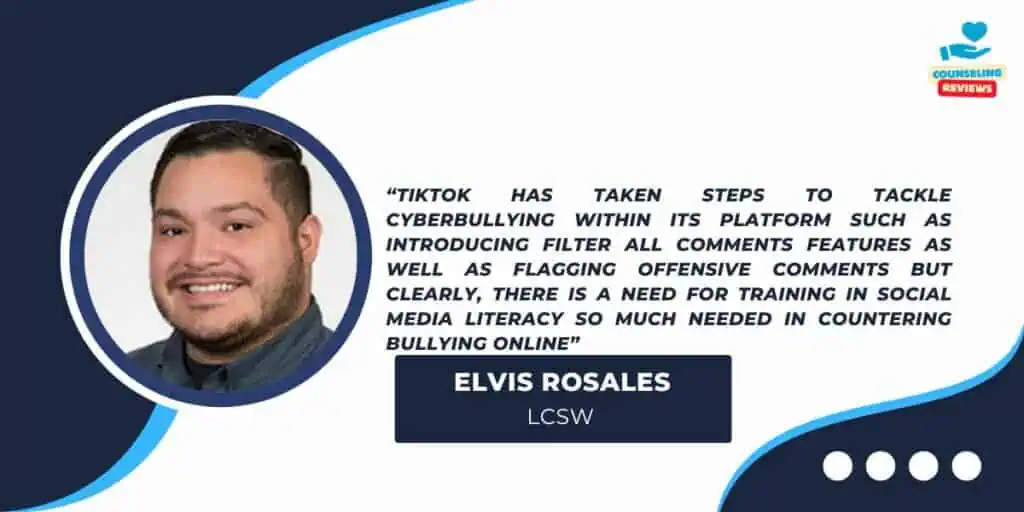
Elvis Rosales, LCSW at Align Recovery Centers
There is continuous growth in social media with the introduction of new applications. TikTok has emerged as one of the newest social media platforms that are making a name for themselves, it is dedicated to users who create short videos for entertainment and for creative expression. The ease with which people can use this platform makes it a sell out to many people especially young ones who seek to constantly connect through online communication as a way of staying updated among other things.
However, TikTok may have negative implications on the mental frame of its users, and this is mostly true when it comes to youngsters. Socially anxious youth may prefer online interactions over face-to-face contacts thus excessive use of TikTok or any other social media can cause feelings of loneliness and isolation.
Like any other social media platform, TikTok has been seen through constant cyberbullying which contributes significantly towards the mental health issues being experienced by users. The effects of cyberbullying can lead to emotional distress and affect the overall well-being of individuals, particularly children and adolescents.
TikTok has taken steps to tackle cyberbullying within its platform such as introducing Filter All Comments features as well as flagging offensive comments but clearly there is need for training in social media literacy so much needed in countering bullying online.
Elvis Rosales, LCSW
As we conclude our exploration into the pervasive influence of TikTok and social media on mental health, it becomes clear that this digital behemoth is more than just a platform for viral content; it’s a potent tool that shapes and reflects our collective psychological well-being. The insights from our panel of therapists and mental health experts underscore the dual-edged nature of TikTok—while it can democratize mental health information and foster a community of support, it also poses risks of misinformation and mental strain.
As we move forward, it is crucial for consumers, creators, and mental health professionals to navigate this landscape with critical awareness and ethical responsibility. Let us harness the positive potential of TikTok to enhance well-being while vigilantly guarding against its pitfalls.
May this dialogue continue to inspire informed conversations and proactive mental health practices in our increasingly digital world.

